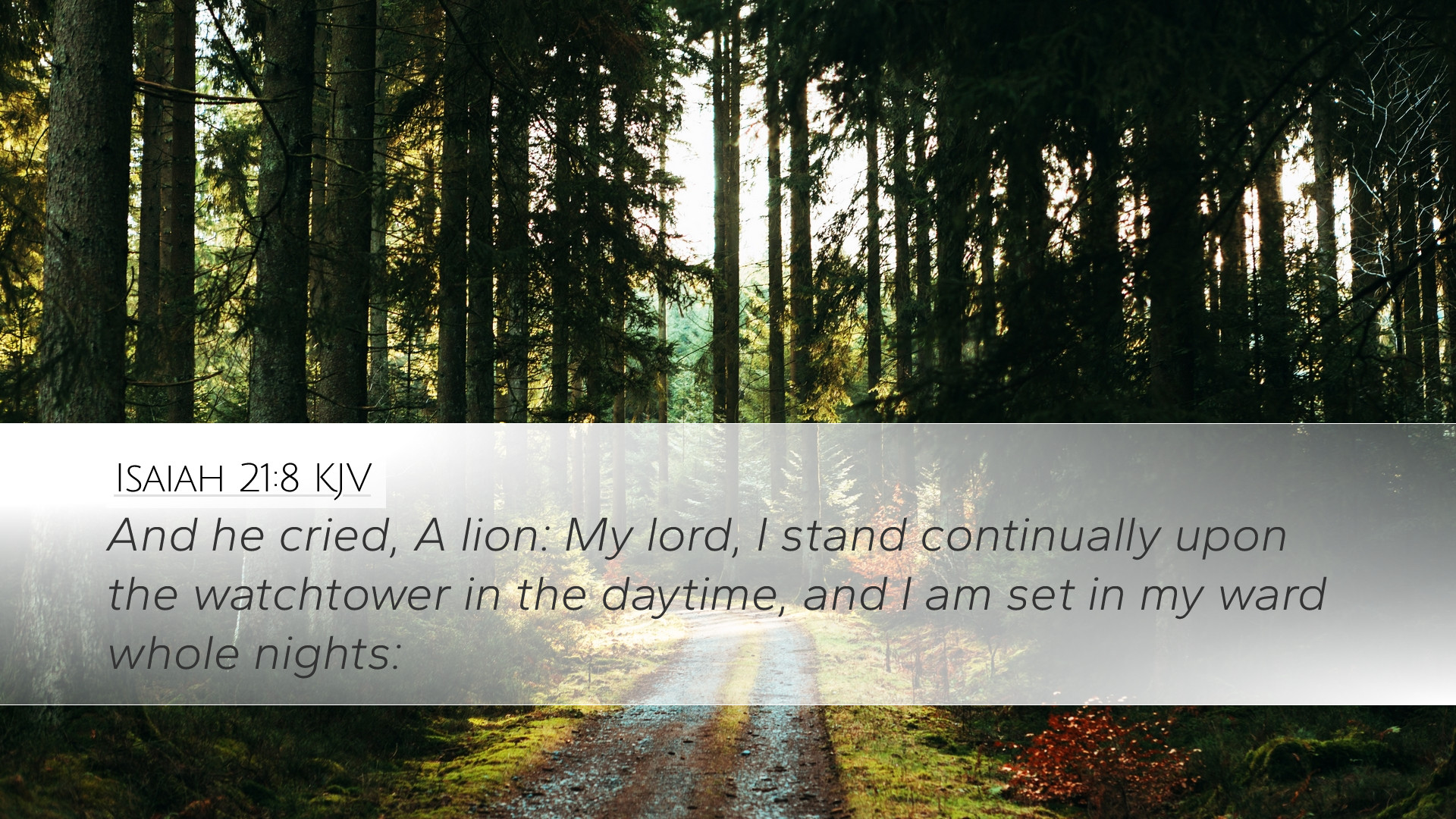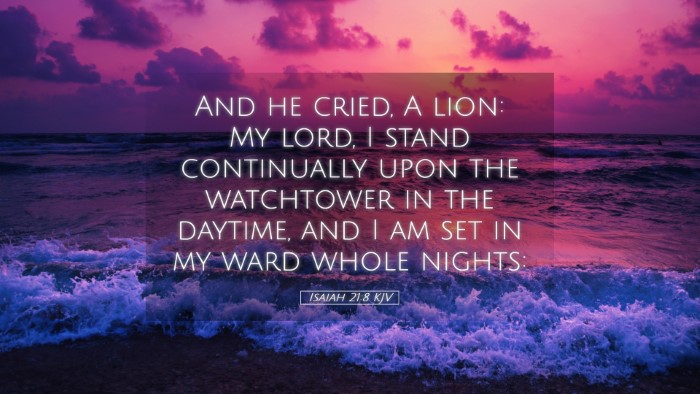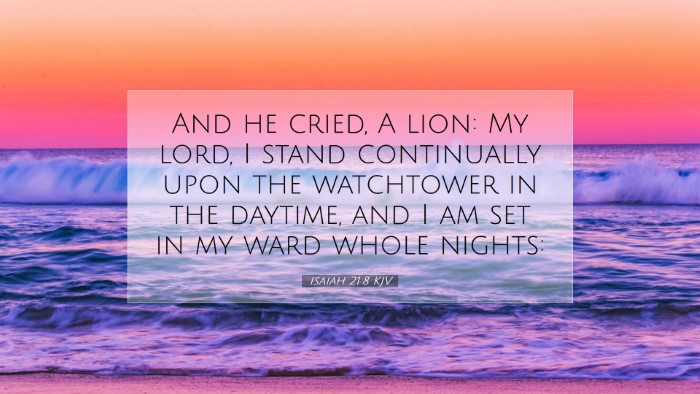Commentary on Isaiah 21:8
Isaiah 21:8 states:
"And he cried, A lion: My lord, I stand continually upon the watchtower in the daytime, and I am set in my ward whole nights:"
This verse captures a moment of vigilance and prophetic alertness. It speaks to the role of the watchman—one who observes impending threats and issues warnings. Below, we explore insights from various public domain commentaries.
Contextual Background
The Book of Isaiah serves both as a prophetic declaration and a profound theological treatise. In Isaiah 21, the prophet discusses the impending doom surrounding Babylon, which is characterized by chaos and destruction. The context involves the watchman positioned on the walls, alert to the movements within and outside the city, symbolizing God’s warnings to His people.
Insights from Matthew Henry
Matthew Henry emphasizes the significance of the watchman in biblical literature. The watchman embodies a role of spiritual oversight and the burden of discernment:
- Vigilance: Henry underscores the necessity of constant vigilance in the spiritual realm. The watchman cries out, identifying threats akin to a lion, indicating the ferocity of the judgment to come.
- Responsibility: The watchman’s continuous watch reinforces the weight and responsibility held by those in prophetic or pastoral roles. They must remain alert not only to present dangers but also to the larger narrative of God's plan.
- Symbolism of the Lion: The lion represents both strength and danger. For Henry, this denotes the coming judgments that are fierce and unavoidable and serves as a metaphor for God’s sovereign power displayed through His wrath against sin.
Insights from Albert Barnes
Albert Barnes provides an analytical perspective on Isaiah 21:8, focusing on the implications of the watchman’s declarations:
- Prophecy of Judgment: Barnes notes that the solitary figure of the watchman cries out “A lion,” signifying an impending threat. The proclamation is a call to awareness for both leaders and the populace regarding the judgment that looms over Babylon.
- Importance of Perseverance: The phrase "I stand continually" indicates a steadfast commitment. For Barnes, this perseverance is crucial in the ministry, as those called to watch must endure through trials and challenges in the face of apathy or false security among the people.
- Night Vigilance: Barnes posits that the watchman’s role extends through the night, indicating that vigilance must not cease even during dark times. This reflects the spiritual reality that darkness can often obscure threats, and the faithful must remain alert.
Insights from Adam Clarke
Adam Clarke offers a rich theological and historical approach to understanding the nuances of this verse:
- Historical Context: Clarke elaborates on the significance of watchtowers in ancient Near Eastern cities. They served both as a physical lookout point and as a symbol of the spiritual state of the nation. The neglect of this duty can lead to disastrous consequences.
- Exhortation to Leadership: Clarke suggests that this call to vigilance is especially pertinent for leaders within the church and community. The spiritual life of the community is often shaped by the dedication of its leaders to watch over and care for their flock.
- The Reality of Spiritual Warfare: The mention of a “lion” encapsulates the reality of spiritual warfare. Clarke calls attention to the need for believers to be aware of adversaries that seek to devour their spiritual lives; hence, the watchman’s prophetic duty becomes vital.
Application for Pastors and Theologians
The implications of Isaiah 21:8 extend to contemporary pastoral practice and theological discourse:
- The Role of the Watchman: Pastors are called to emulate the watchman’s vigilance, offering warnings against spiritual complacency and fostering a community that is both aware and prepared.
- Mobilizing the Congregation: Equipping church members to recognize the “lions” in their own lives can empower them to live more intentional and God-centered lives. Teaching discernment becomes crucial.
- Endurance in Ministry: Clarke’s insights on commitment and perseverance remind leaders that challenges are part of spiritual leadership. Constant prayer and reliance on God’s strength are essential for effective ministry.
Conclusion
Isaiah 21:8 serves as a poignant reminder of the responsibility of spiritual leaders and believers alike to remain vigilant. The imagery of the watchman calling out warns against both external threats and internal complacency. The insights drawn from the commentaries of Matthew Henry, Albert Barnes, and Adam Clarke encourage a deepening understanding of vigilance in the Christian life and the prophetic call to remain alert to the signs of the times.


